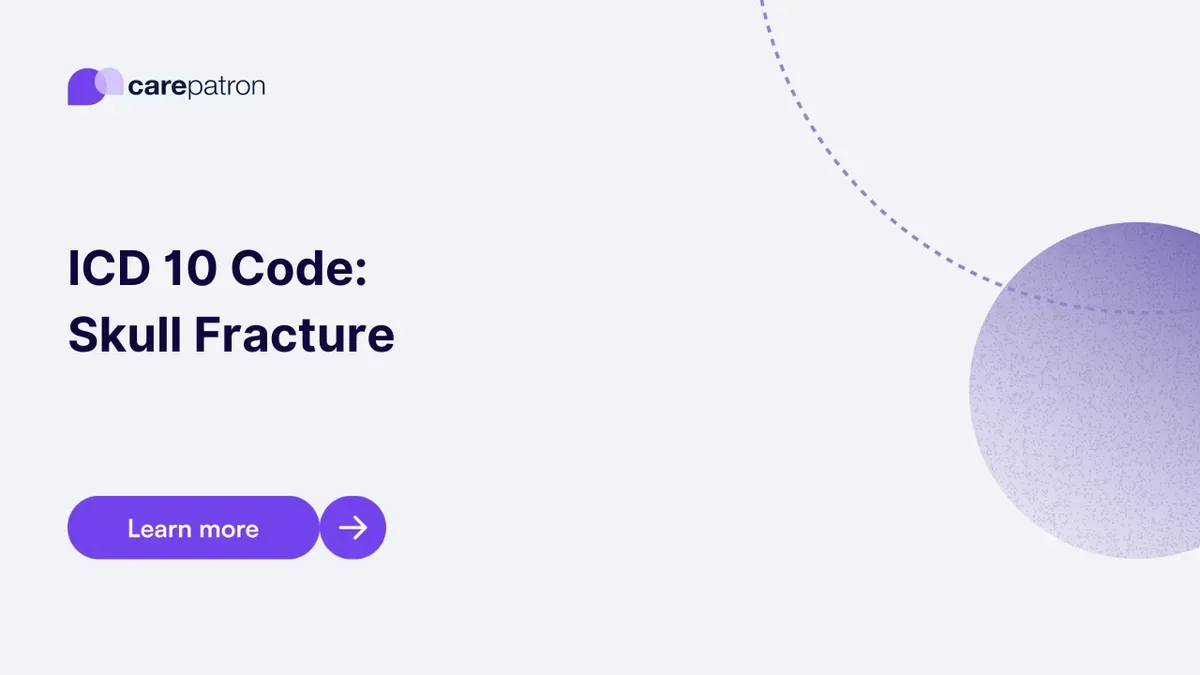
Skull Fracture ICD-10-CM Codes
Explore the specific ICD-10 Codes for skull fractures. Discover their billability, related terminology, and more.
Use Code
Commonly asked questions
You can use a skull fracture ICD code when documenting cases of skull fractures wherein you have identified the location of the injury, type of fracture, or type of encounter.
Only the more specific codes under the ICD 10 related to skull fractures mentioned above are billable.
For severe cases of skull fractures, a standard treatment is surgery. However, an over-the-counter medication may be recommended if it's not that severe.
EHR and practice management software
Get started for free
*No credit card required
Free
$0/usd
Unlimited clients
Telehealth
1GB of storage
Client portal text
Automated billing and online payments
